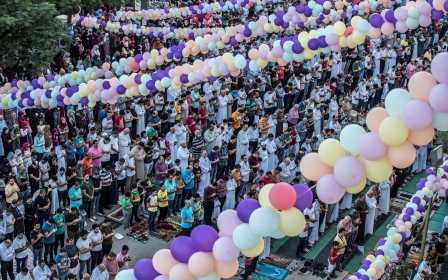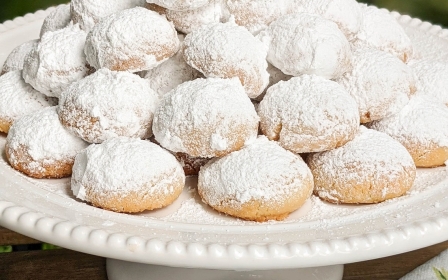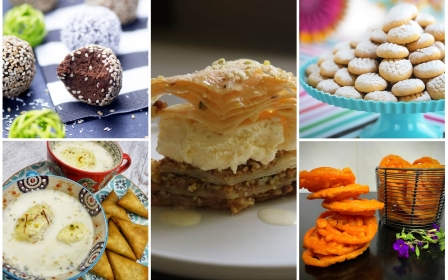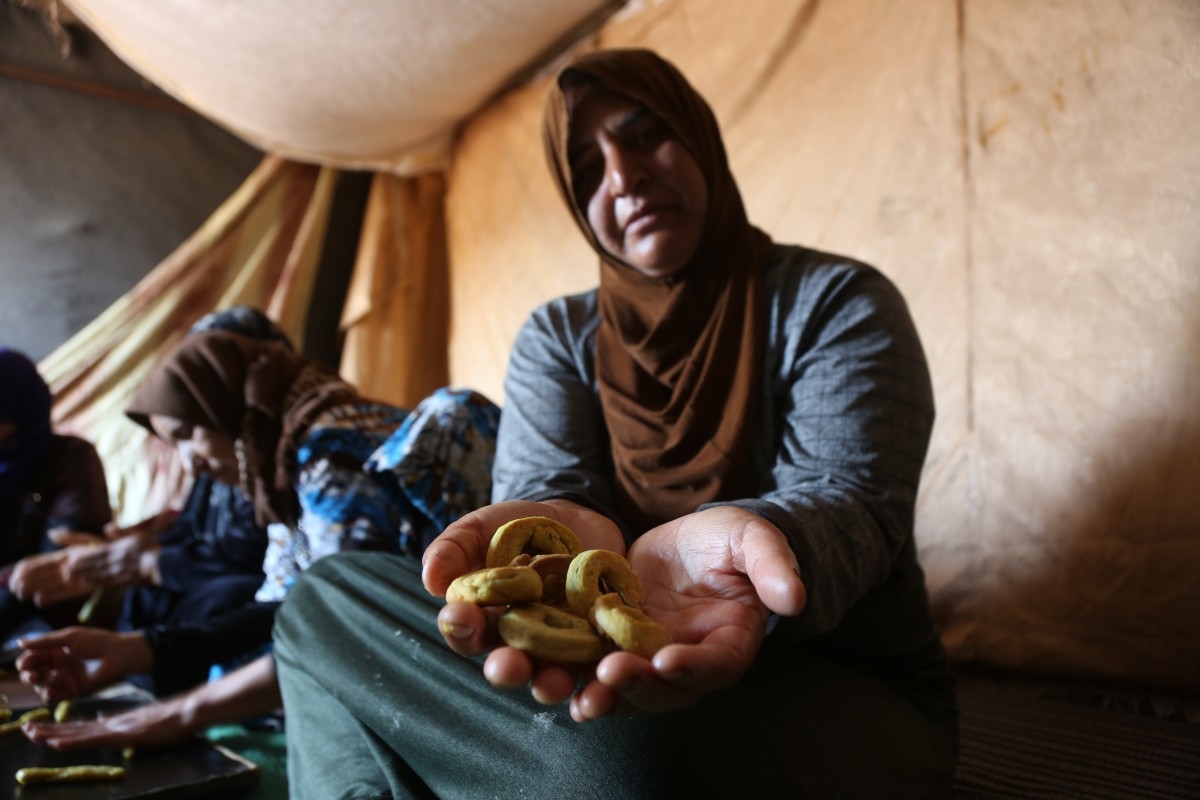
Displaced Syrian women prepare sweets for another Eid in Idlib camps
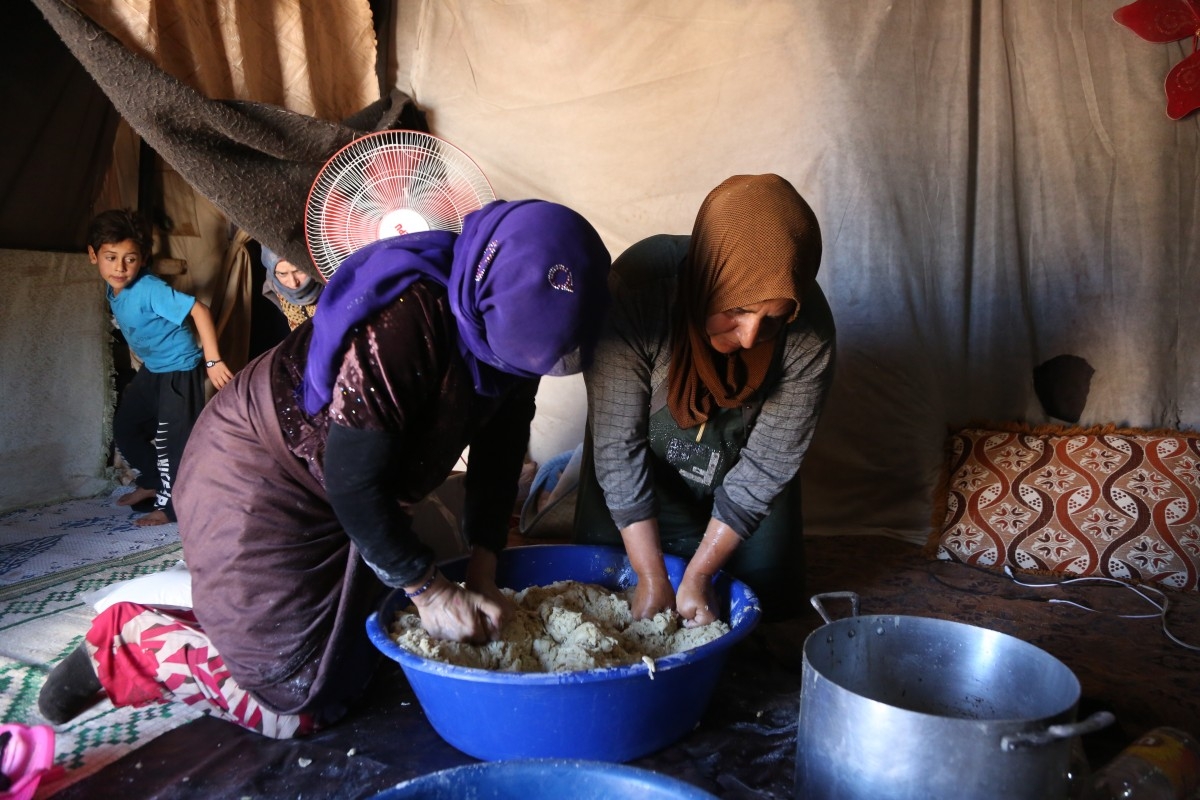
Baking special treats for the Eid al-Fitr festival is a common tradition throughout the Middle East as a way to mark the end of the Muslim fasting month of Ramadan. In rebel-held Idlib, where hundreds of thousands of Syrians displaced from the decade-long war in their country live in makeshift tents, women are busy preparing Eid cookies despite a lack of essential supplies. (All photos by Asaad Al Asaad)
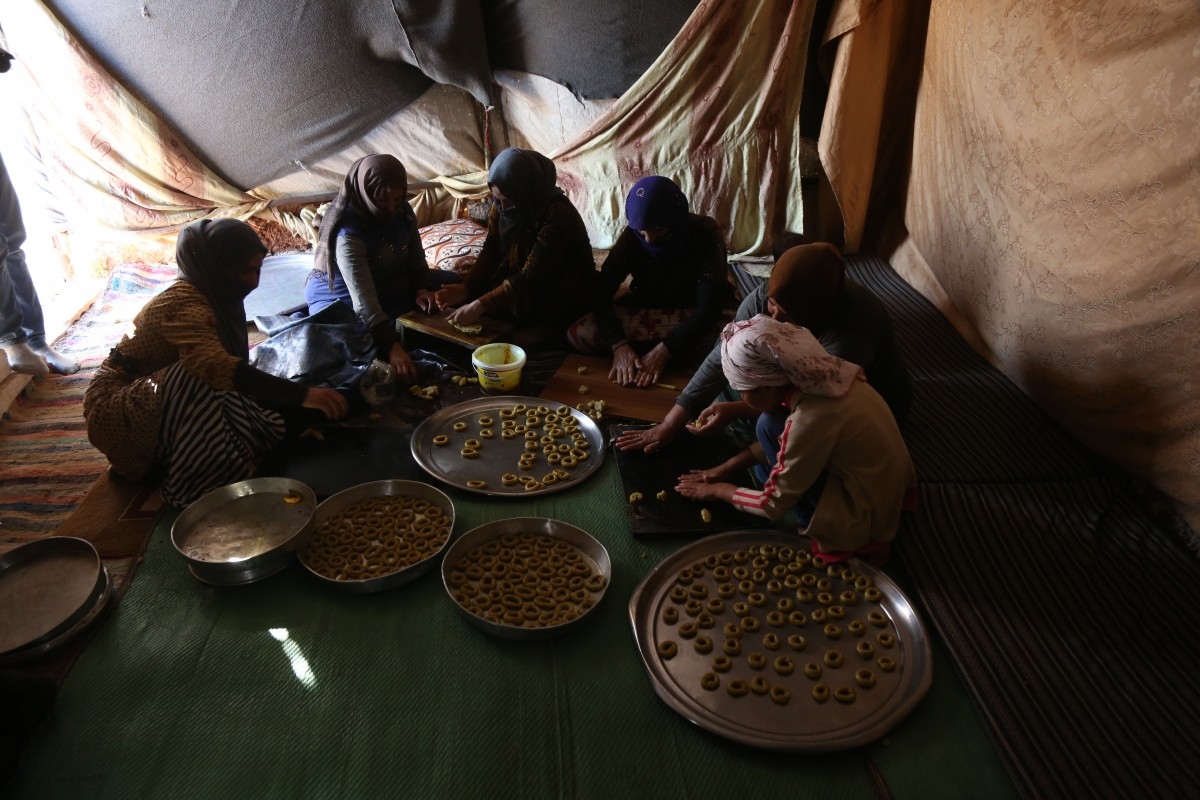
In the days leading up to Eid al-Fitr, several women have gathered in one tent in the Harbanoush camp, which houses around 100 displaced families, to collectively bake traditional Eid kahk, or cookies. "[Celebrating] this festival is a religious duty and we have to enjoy it, " says Najwa Yassin, who fled from her village near the town of Saraqib in north-west Syria two years ago, adding that the women buy the supplies using their own money.
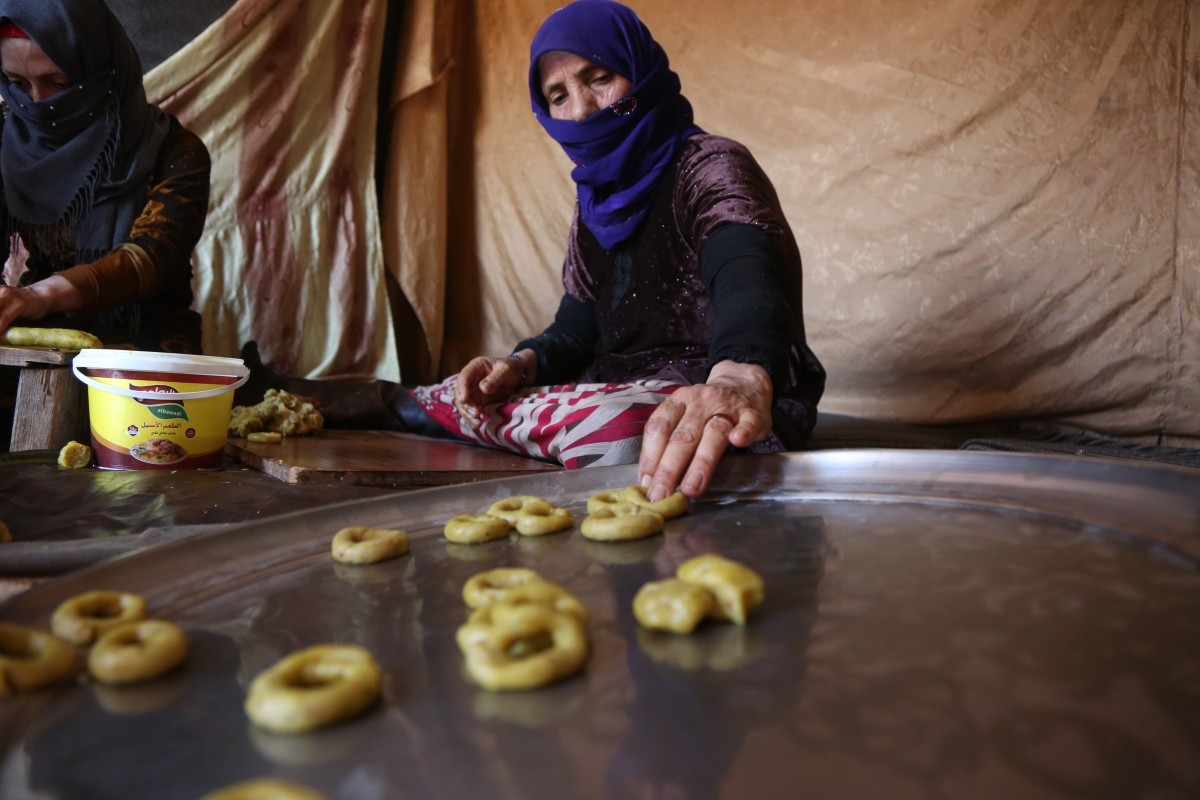
"We used to make these sweets in our homes before we were displaced, with different rituals. And we would bake them in our own kitchens," says Yassin (above). "Now that we live in tents, we have to gather in groups of around 10 women to make large batches of kahk so we can distribute them to the whole camp."
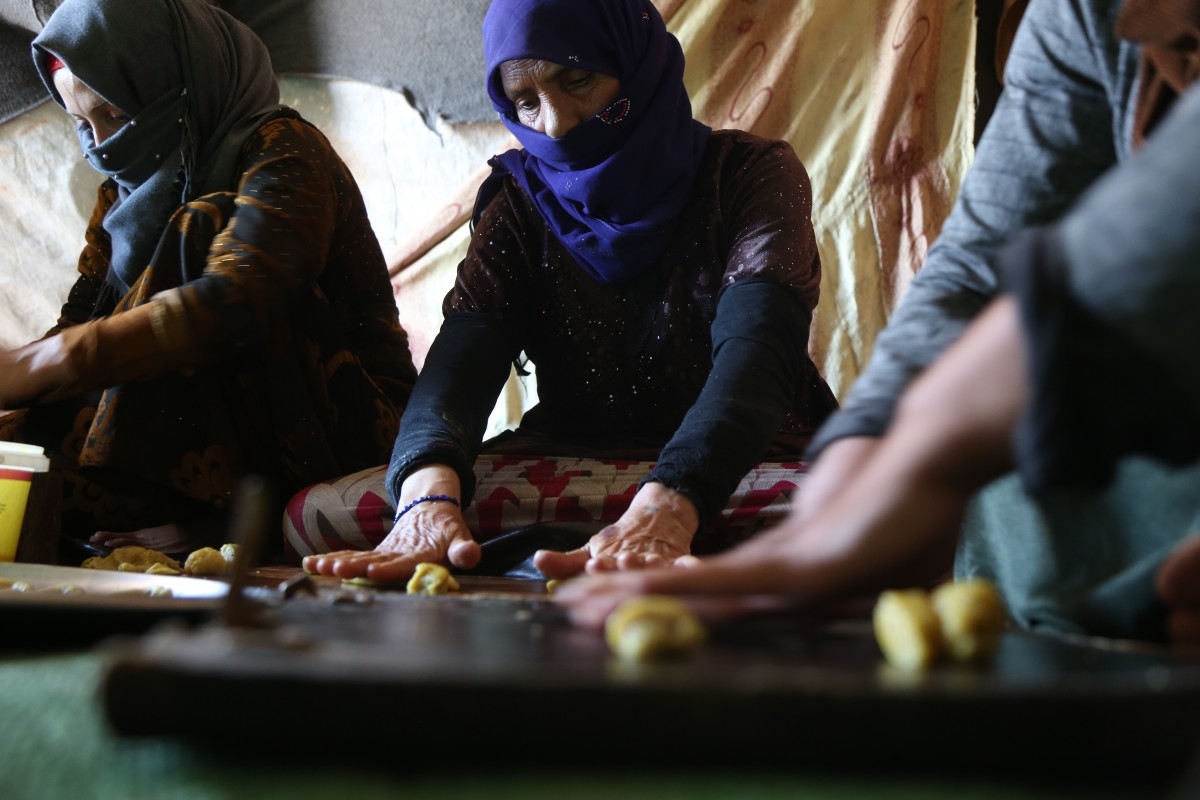
"We may be baking Eid kahk, but it's not the same kahk we used to make back home," says 43-year-old Fatoum Sharaf al-Din, whose husband was killed when their village near Maarat al-Numan was bombed. "We used to include many ingredients we can't afford now, like clarified butter, nuts, and white flour."
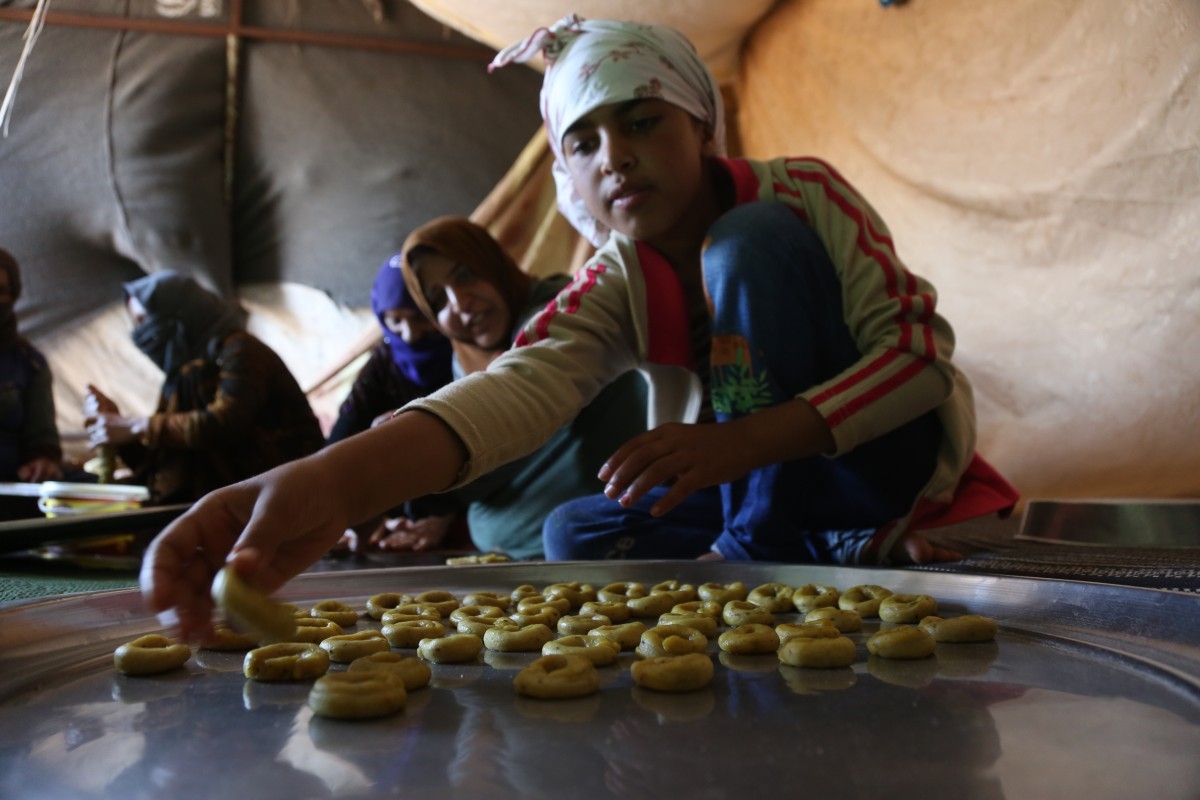
"In the past, when we were in our own towns and homes, when Eid was approaching we would use a large electric oven to bake the kahk," says Sharaf al-Din, who now lives in the camp with her three children. "Now we have to use a small gas oven that doesn't produce the same kind of kahk as before."
"We also don't have the cake moulds we used to have at home. So, now we only make round kahk whereas before we would get creative with the shapes of the sweets."
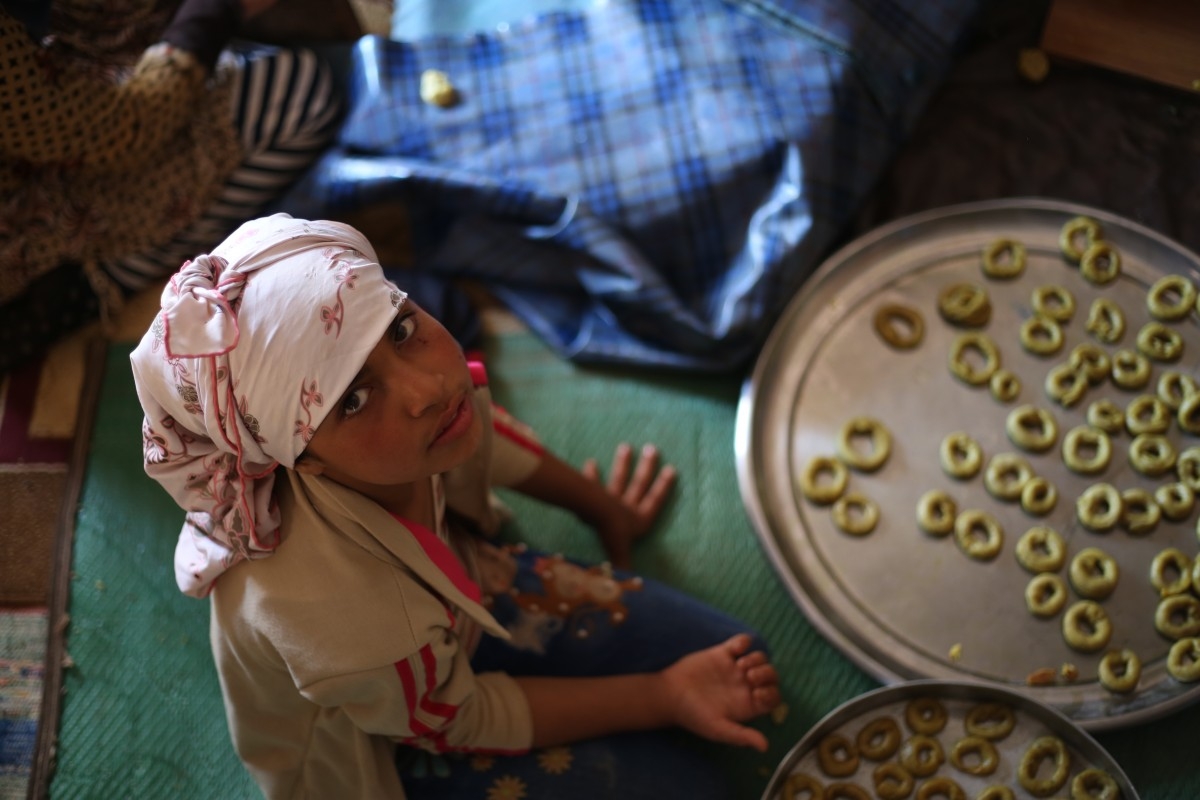
Children are often encouraged to join in the preparations for the festival. It is also traditional for children to receive cash gifts from relatives, as well as dress in brand new clothes during Eid. But this isn't always possible for the people living in camps, who head to the second hand clothes shops that have popped up in recent years instead.
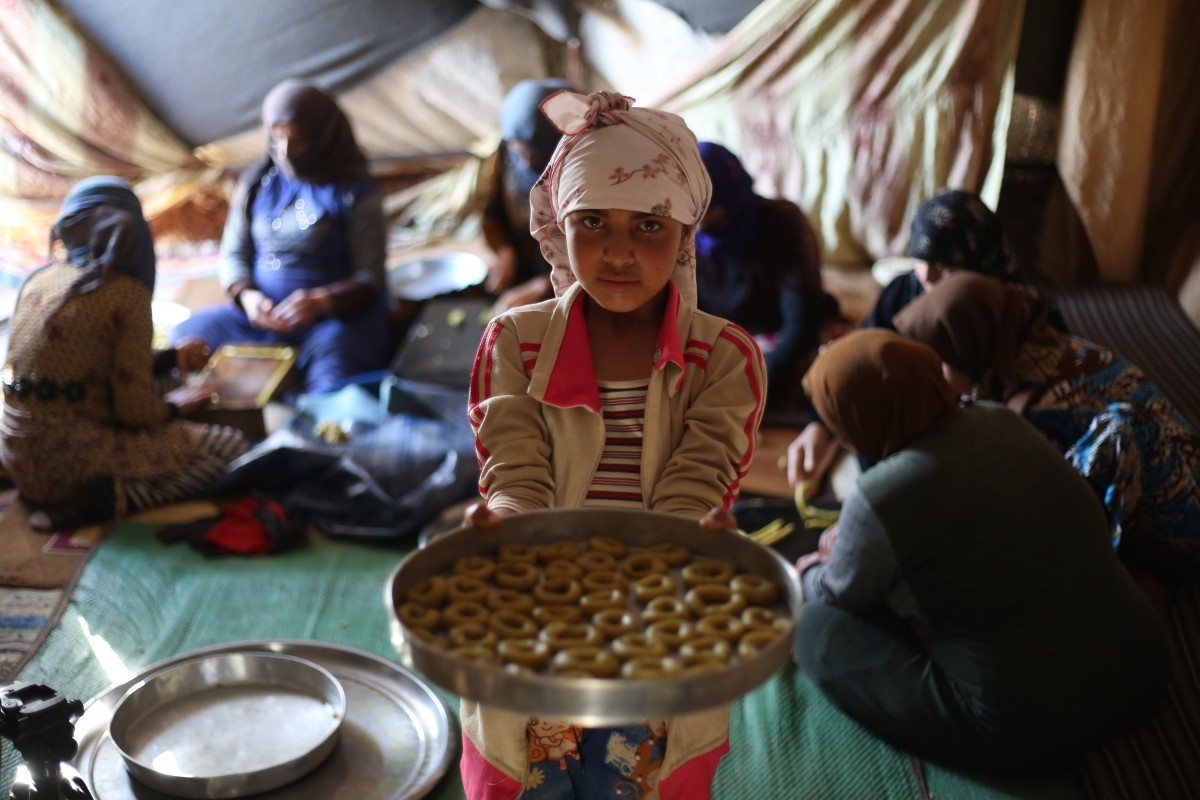
"Since we left our homes, Eid to us is like any other day in the camps, but for children, it is still special. So we try hard to make it a break for them from living in a tent surrounded by mountains," says Fatima al-Asaad, who used to live in the southern countryside of Idlib province. "I bought clothes for my three children from a second-hand shop."
"The total cost for all the kids' clothes was 200 Turkish lira ($25), whereas if I'd bought them new then each outfit would have cost 200 lira."
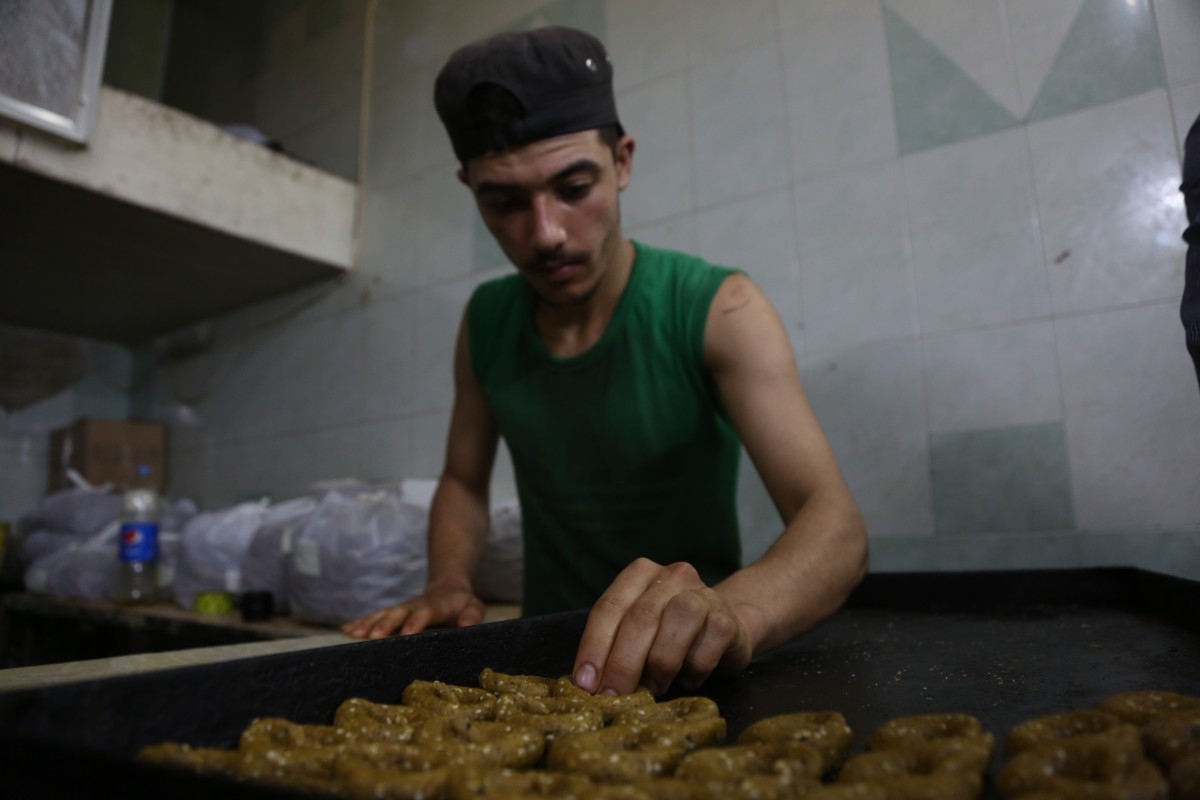
Syrian desserts are famed throughout the Middle East, although levels of production throughout the country have fallen dramatically following years of conflict. But in the markets of Idlib, Eid is still a busy time of year, with shoppers seeking essentials, and of course, kahk.
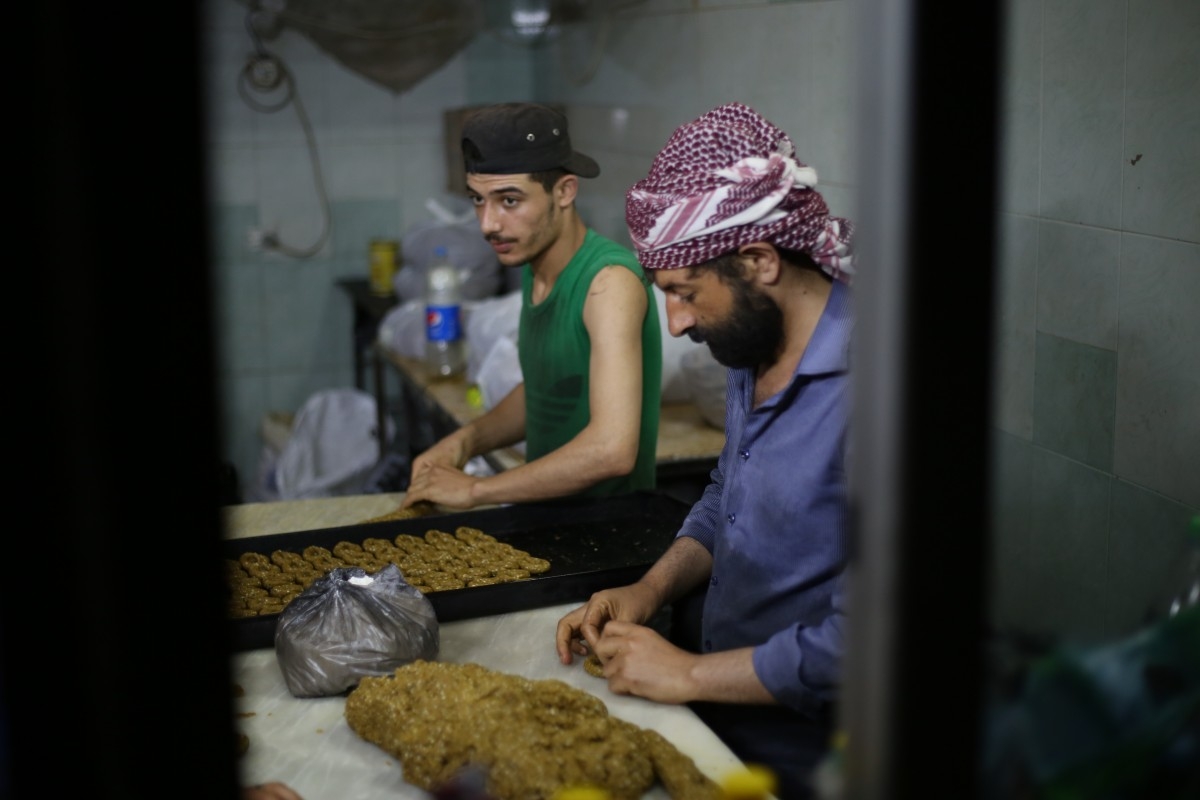
"There are many different types of Eid kahk, but the one that's popular here in Idlib province is called kahk bizeit (kahk with oil)," says Mahmoud Atallah (right), 40, who owns a bakery in the centre of Idlib market. "[These] are made with 5o percent olive oil, which is found in abundance in Idlib province."
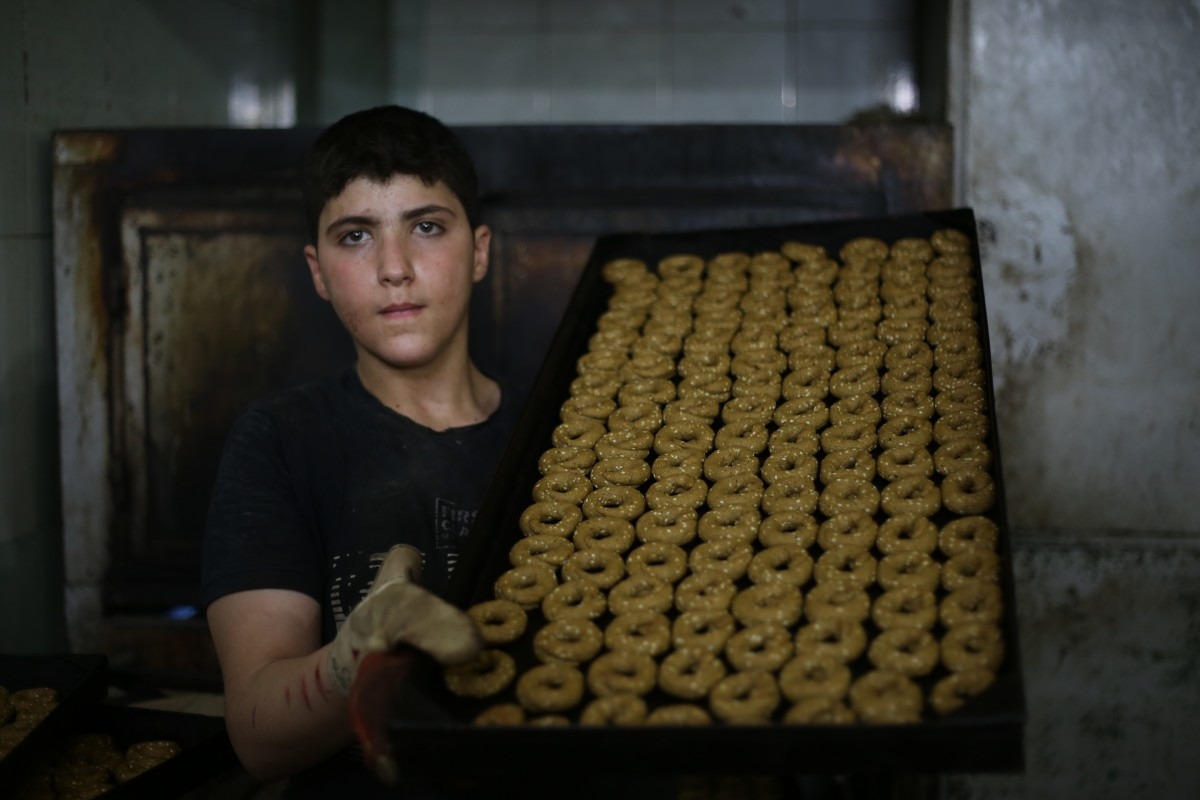
"We prepare it in the traditional way, but there are also a number of different recipes alien to our [local] culture that people coming from various Syrian governorates have introduced," Atallah adds. "These sweets are unique to the Eid festival and bring us lots of joy."
Middle East Eye delivers independent and unrivalled coverage and analysis of the Middle East, North Africa and beyond. To learn more about republishing this content and the associated fees, please fill out this form. More about MEE can be found here.


